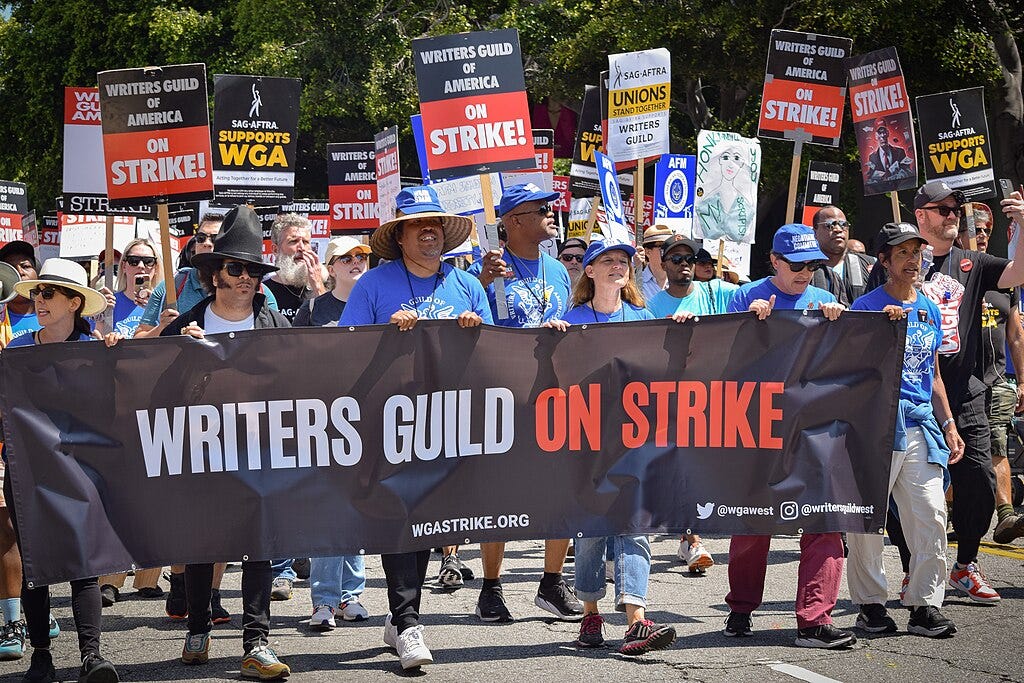The Writers' Guild Won. What's Next?
Streaming is about to become more equitable. That's good for supporting and uplifting historically marginalized writers.
I know I haven’t posted much on here in the last few months, but that’s because I’ve been busy working on a series of articles for Prism Reports covering the Writers Guild of America strike, from the perspective of disabled and other historically marginalized creators.
My latest, published this week, looks at the WGA’s wins after over five months on strike, and what’s next, especially as their counterparts in SAG-AFTRA continue on the picket lines. As I wrote:
Central to the negotiations were issues around writer compensation, writers’ room sizes, and employment duration, as well as residual payments and protecting workers from being replaced by artificial intelligence. Compared to the AMPTP’s original offers in May, the gains are enormous. These wins will help all writers, especially historically disadvantaged writers, have a better chance of entering and advancing in the industry.
When the deal was announced, “it felt almost like a celebration,” said Y. Shireen Razack, a TV writer and co-founder and co-chair of the Think Tank for Inclusion and Equity (TTIE). “The bars exploded with people going out and meeting up and just celebrating the win.”
As Keisha Zollar, a WGA and SAG-AFTRA member, said, “Getting a [WGA] deal was a huge sigh of relief because I desperately want to get back to some sense of normalcy … The strike went on much longer than I could have imagined, and I’m grateful it did to be able to get everything from the contract so many writers needed.”
In the article, I describe the gains from the contract, including higher compensation, minimum room sizes, and minimum employment durations, with premiums required to be paid out for shorter jobs. It also includes a fairer residual payment structure, more protections from AI, script fees for lower-level writers, and higher health insurance and pension contributions.
Though none of these points explicitly address the challenges that people of color and disabled writers face, they will help make entry and success in the field more possible.
But writers will still need to remain vigilant, as the industry faces a contraction and possible move away from diverse content. I discuss all this and more in the article, which you can read here.
What I’m Watching: Whew, it’s been a while. My partner and I have been rewatching “Superstore,” and it is such a delight. It’s hilarious and addicting, has great characters and character development, and the central will-they-of-won’t-they-couple of America Ferrera and Ben Feldman have amazing chemistry. There’s also a lot of commentary on labor issues, unions, capitalism, and immigration. Perfect for “hot strike summer” (“hot strike autumn” now, I guess!) It features a diverse and hilarious cast and writers’ room. I don’t know why this show never reached the mythic heights of “Parks and Rec” or “The Office,” as I might argue it’s better than either. Or, it at least holds up better in these darker political times. Go watch it!



